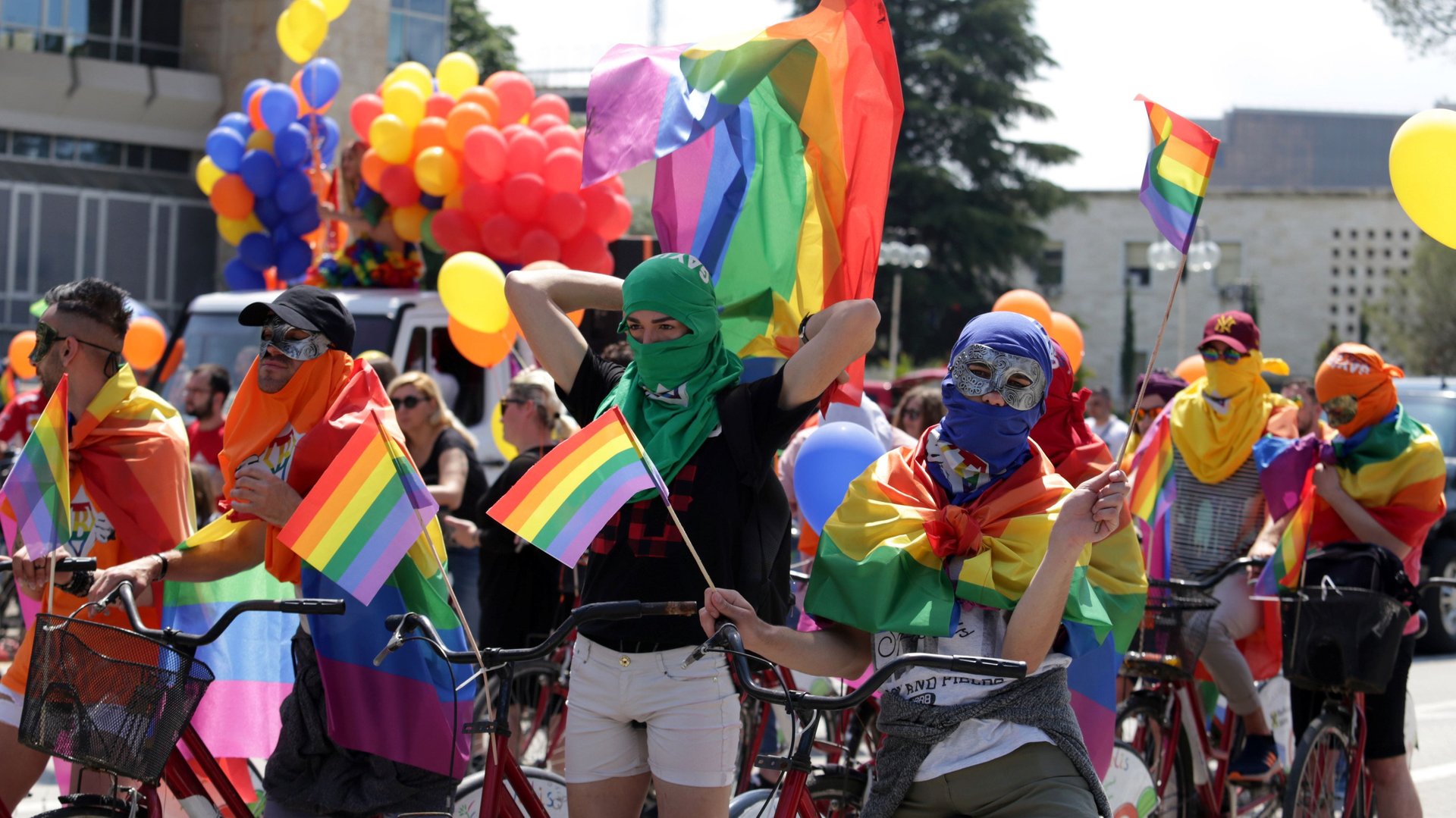Many European countries are “stagnating” on LGBTQ+ rights
The work for LGBTQ+ equality still has a long way to go in Europe.


The work for LGBTQ+ equality still has a long way to go in Europe.
In fact, LGBTQ+ rights have “stagnated” across the continent, according to the annual Rainbow Europe survey by ILGA-Europe, an NGO based in Brussels. The report says that the rise of populism and nationalism are areas of concern for LGBTQ+ people in Europe.
The report ranked European countries on its LGBTQ+ equality laws; looking at its policies on discrimination, family rights, hate speech, gender recognition, civil society space, and asylum. Malta came out on top for the third year in a row, scoring 91% in the ranking, followed closely by Belgium, and Norway.
ILGA-Europe argues that progress on LGBTQ+ rights is slowing down in Europe. That means new laws protecting LGBTQ+ rights in the family, workplace, and civil society aren’t appearing as frequently as they once did. With just 16 out of 49 countries gaining a score over 50%, ILGA-Europe says this stagnation isn’t down to not having enough rights and issues to legislate for. The NGO concludes there are major rooms for improvement in gaining equality for the LGBTQ+ within those communities.
Azerbaijan was ranked the worst country for LGBTQ+ rights in Europe. Over the past year, LGBTQ+ people in the country have been targeted in police raids, forced to undergo medical exams, and were detained. “On the legal and policy front, there were no positive developments to report,” ILGA-Europe notes in the report.
In the UK, the government announced a recent public consultation on gender identity. But ILGA-Europe notes that this consultation was met with a rise in transphobic commentary across traditional media platforms and online. The NGO applauds the German government’s recent move to legalize same-sex marriage, but points out that the country still has a long way to go (it scored just 59%). The NGO is particularly concerned that Germany has yet to implement national legislation to protect LGBTQ+ people from hate speech.
Southern Europe scored particularly poorly. In Italy, which scored 27%, same-sex marriages that are registered abroad are still not recognized in the country (couples must instead register partnership as a civil union). Further east, Poland scored just 18% as LGBTQ+ people in the country “continued to encounter discrimination,” ILGA-Europe notes.
The NGO warns that the rise of populism and the far-right could result in a rollback of pro-LGBTQ+ legislation. “There are too many signs around us that many of the recent wins are fragile,” the NGO’s Executive Director Evelyne Paradis said in a statement. “So let me say it again—we are nowhere near done.”